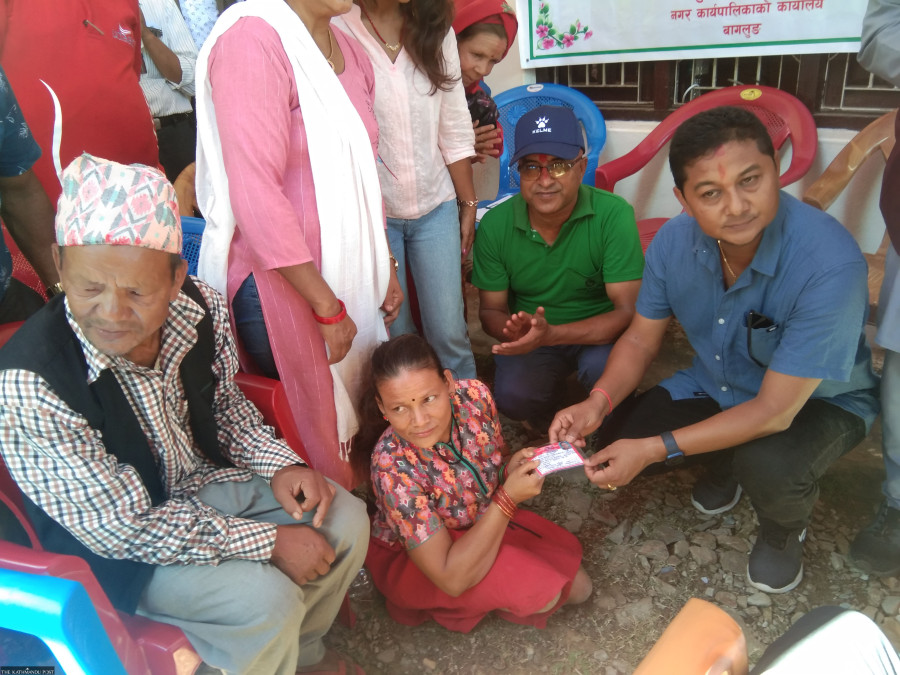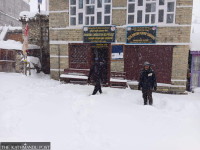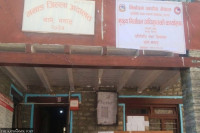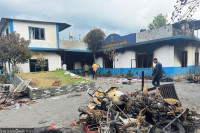Gandaki Province
Baglung government offices are not disabled-friendly
There are approximately 4,700 people with disabilities in the district, stakeholders say.
Prakash Baral
Kumari BK, a 30-year-old woman from Baglung Ward 12, is paralysed waist down. She has been living with disability her whole life but it was only recently that she received her disability identification card.
“My card had been sitting in the municipal office for a long time since I couldn’t go to collect it,” said BK. “The office had organised a mobile camp where they distributed the cards. It was only then that I got a hold of it.”
BK says the lack of disabled-friendly infrastructure in government offices deprives her of her agency to move freely and to take care of her own needs.
“At least the local unit offices are not very far,” BK said. “If I have to go to the district-level offices for work, I won’t be able to go alone. I will need someone to take me there and help me.”
At the Baglung Municipality office, most departments are located on either the first or the second floor making it hard for disabled people to seek service.
“People with physical disabilities or wheelchair users cannot enter the newly-constructed municipal building of Baglung Municipality and Dhaulagiri Hospital without the help of another person,” said Khomraj Sharma, chairman of the National Federation of the Disabled Gandaki Province. “Most of the meeting rooms in the offices and hospitals are on the upper floors.”
According to Sharma, none of the offices or the hospitals of the district is disabled-friendly.
In the District Administration Office, the chief and assistant chief use the first floor of the building and service seekers have to use the stairs to reach them. This setup is unsuitable for a wheelchair user, says BK. “The entrance has an inclined ramp but that too has been placed so high that someone has to lift the wheelchair and place it on the ramp.”
“Going to government offices is a nightmare for people with disabilities. Disabled people have to struggle and suffer a lot even when availing government services,” said Sharma. “The front desk employees suggest disabled people bring someone with them but not everyone has friends and family to take care of them.”
According to the National Federation of the Disabled Gandaki Province, there are approximately 4,700 people with disabilities in the district, but so far only 2,000 people have received their identity cards.
“Neither the local nor the district level offices have prioritised providing seamless services to the disabled,” said Sharma. “Disabled people face challenges in every step of their lives. The government should bring changes to make the lives of the disabled easier.”
Tikaram Sapkota, joint secretary of the federation, says the lack of disabled-friendly laws or infrastructure for disabled people has robbed the disabled population of their right to freedom of movement in public spaces. “A disabled person can’t even go to a government office to get service without feeling humiliated,” Sapkota said. “The authorities have not done enough for this section of society.”




 9.89°C Kathmandu
9.89°C Kathmandu.jpg)











